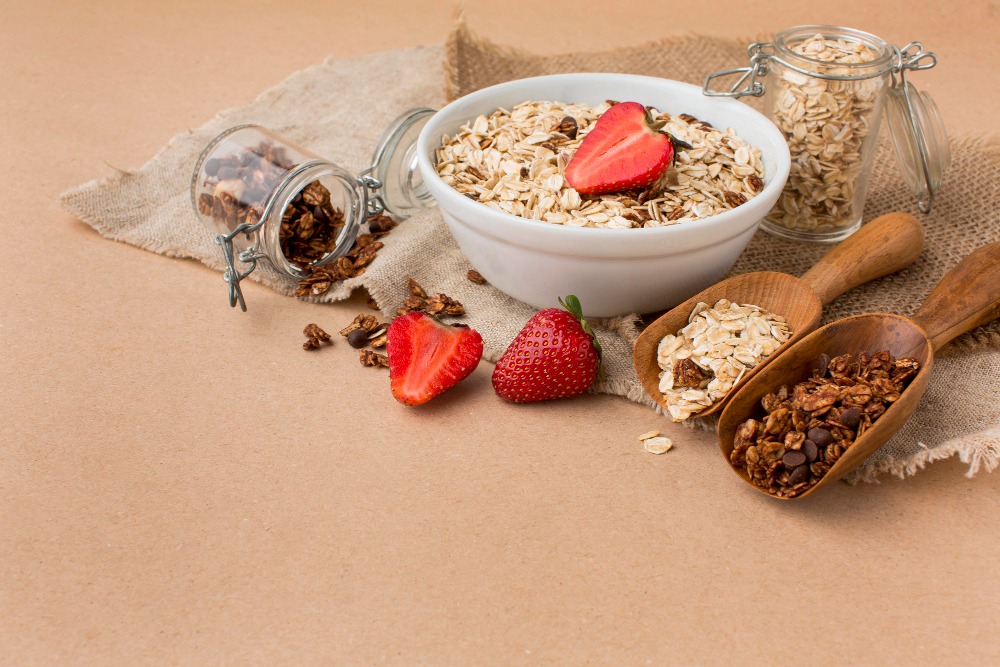
A healthy breakfast is the cornerstone of a productive day, and choosing the right cereal can set the tone for your dietary goals. Whether you’re aiming for weight loss, muscle gain, or simply maintaining a balanced diet, there’s a breakfast cereal to match your needs. In this guide, we’ll explore various healthy breakfast cereals that cater to different dietary requirements and how to find them at your local food store.
The Importance of a Healthy Breakfast
Before diving into specific cereals, it’s important to understand why a healthy breakfast is essential. Breakfast provides additional vital nutrients needed for optimal health while also replenishing your body’s glucose supply, increasing alertness and energy levels. A balanced breakfast can improve concentration, reduce the risk of overeating later in the day, and help maintain a healthy weight.
Understanding Your Dietary Requirements
Different people have different dietary needs based on their health goals, lifestyle, and any existing medical conditions. When selecting a breakfast cereal, it’s crucial to consider these factors:
- Weight Loss: If your goal is to lose weight, you should focus on cereals that are low in calories but high in fiber. This will help you feel full longer, reducing the temptation to snack later in the day.
- Muscle Gain: For those looking to build muscle, high-protein cereals are the way to go. These cereals often contain added protein from sources like whey, soy, or pea protein.
- Gluten-Free: Individuals with celiac disease or gluten sensitivity need to avoid cereals containing wheat, barley, or rye. Gluten-free cereals made from corn, rice, or quinoa are great alternatives.
- Vegan: Vegans should look for cereals that contain no animal products. This means avoiding cereals with honey, milk derivatives, or certain added vitamins like Vitamin D3 sourced from animals.
- Heart Health: If maintaining heart health is a priority, cereals rich in whole grains and low in sugar and sodium are ideal. These cereals typically contain oats, barley, or bran.
- Diabetes Management: For those managing diabetes, cereals with a low glycemic index (GI) are essential. These cereals cause a slower rise in blood sugar levels, helping to keep them steady.
Top Healthy Breakfast Cereals for Various Dietary Needs
1. For weight loss: high-fiber cereals
High-fiber cereals are perfect for those looking to shed some pounds. They help you feel full longer and support digestive health. Look for cereals with the fewest amount of added sugar and at least 5 grams of fiber per serving.
- Bran Flakes: Packed with fiber, bran flakes are a classic choice. They are low in calories and keep you full for hours.
- Oat-Based Cereals: Oats are naturally high in fiber and can be found in many healthy breakfast cereals. They also help lower cholesterol.
When shopping at your local food store, check the label for fiber content and avoid cereals with high sugar content.
2. For muscle gain: protein-packed cereals
Building muscle requires a diet rich in protein, and breakfast is a great time to start. High-protein cereals often contain additional protein sources like whey or soy.
- Protein Granola: Many food stores now carry granola cereals fortified with extra protein. These are great for a post-workout breakfast.
- Soy or pea protein cereals: These cereals are typically vegan-friendly and provide a substantial amount of protein without the extra calories.
When selecting a protein cereal, read the ingredient list to ensure you’re getting a quality protein source without too much added sugar.
3. For gluten-free diets: safe and tasty options
If you’re on a gluten-free diet, there are plenty of cereals available that meet your needs without sacrificing taste.
- Corn Flakes: Traditional corn flakes are naturally gluten-free and widely available in most food stores.
- Quinoa Flakes: Quinoa is a nutritious grain that’s gluten-free and high in protein. Quinoa flakes make a great cereal base for a healthy breakfast.
Always look for the gluten-free certification on the cereal box to ensure that the product is safe for your consumption.
4. For Vegans: Plant-Based Cereals
Vegans need to avoid cereals with any animal-derived ingredients, but there are plenty of delicious options available.
- Whole Grain Oatmeal: Oatmeal is a versatile and filling breakfast option that’s 100% plant-based.
- Vegan Granola: Many granolas are made without honey or milk products, making them suitable for vegans.
Check the labels at your local food store to ensure that your chosen cereal aligns with your vegan lifestyle.
5. For Heart Health: Whole Grains and Low Sugar
To maintain heart health, focus on cereals that are high in whole grains and low in added sugars and sodium.
- Oatmeal: Oats are a heart healthy option due to their high fiber content and ability to lower cholesterol.
- Barley-Based Cereals: Barley is another whole grain that’s excellent for heart health. Look for cereals that feature barley as a primary ingredient.
When shopping, avoid cereals with high sodium levels and opt for those rich in whole grains.
6. For Diabetes Management: Low-Glycemic Options
For managing diabetes, choosing cereals with a low glycemic index is key. These cereals aid in preserving stable blood sugar levels.
- Steel-Cut Oats: These have a lower glycemic index compared to instant oats and are a healthier choice for diabetics.
- Bran Cereals: High in fiber and low in sugar, bran cereals are another great option for managing blood sugar levels.
Check the glycemic index information on cereal packaging or consult with your food store’s health section for suitable options.
Conclusion
Choosing the right breakfast cereal is essential for starting your day off on the right foot, especially when it comes to meeting specific dietary requirements. Whether you’re focusing on weight loss, muscle gain, or managing a medical condition, there are plenty of healthy cereal options available at your local food store. By understanding your needs and making informed choices, you can enjoy a nutritious breakfast that supports your overall health and well-being.